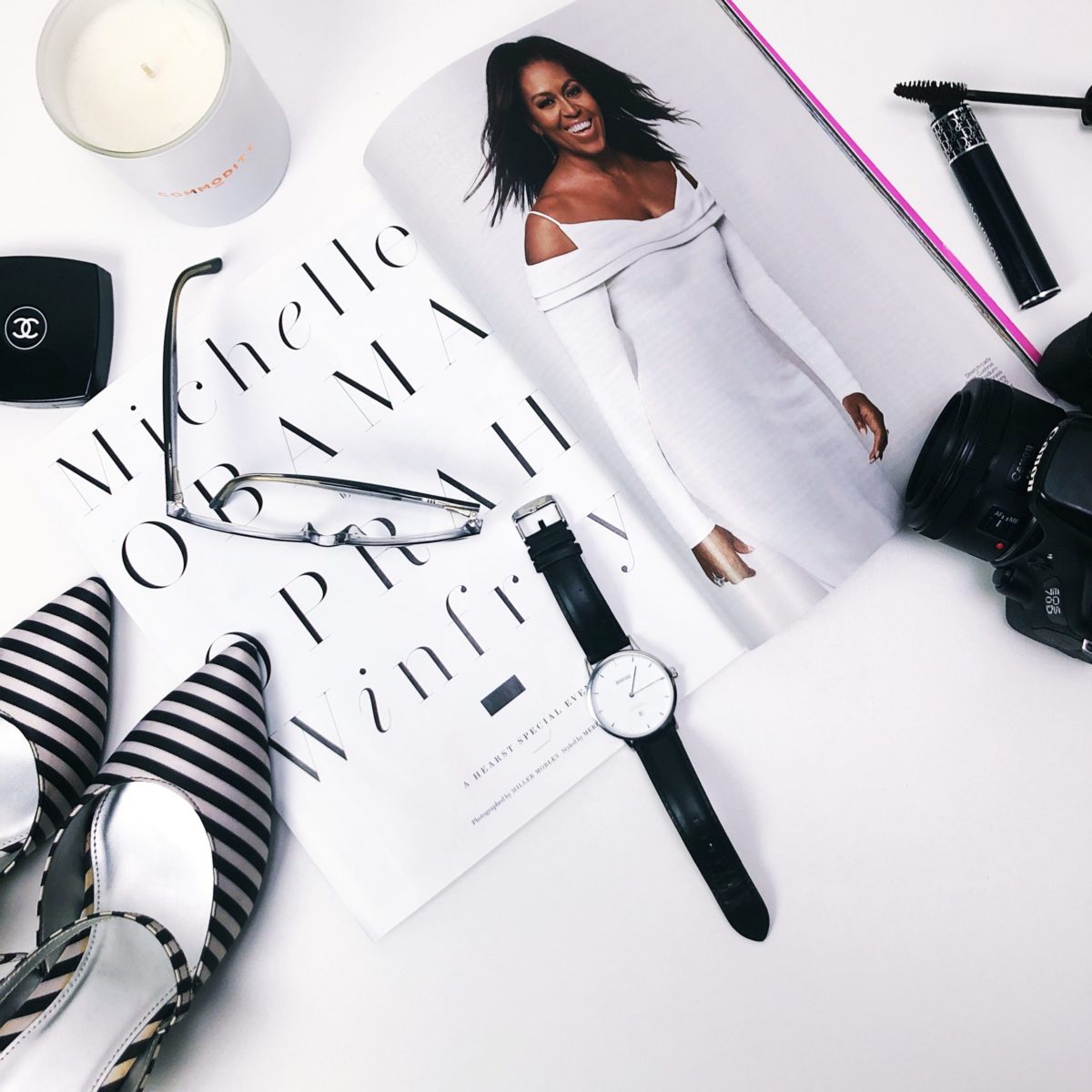Four Inspiring Poems for Michelle Obama’s Birthday
Former First Lady Michelle Obama serves as an inspiration for many. In fact, a 2019 poll from Gallup recognized her as the nation’s “most admired woman” for the second year in a row. That same year, Obama’s memoir, Becoming, topped bestseller lists for more than a month, earning it the title “best-selling hardcover of the year,” and her book tours garnered crowds of over 20 thousand adoring readers. Her iconic “When they go low, we go high,” quote has graced everything from desk nameplates to T-shirts and endures as a rallying cry ahead of the 2020 presidential campaign.
During her time in office as the first African American First Lady, Obama championed physical and mental health, global education initiatives for girls and women, and an end to veteran homelessness. Alongside these issues, she also emphasized the power of the arts, including poetry. “The arts are not just a nice thing to have or to do if there is free time or if one can afford it. Rather, paintings and poetry, music and fashion, design and dialogue, they all define who we are as a people and provide an account of our history for the next generation,” Obama once proclaimed at a ribbon-cutting ceremony at the Metropolitan Museum of Art. Obama continues to make history and impact generation after generation. In honor of her 57th birthday this Jan. 17, these poems bare testament to her power, her grace, and her originality.
“Phenomenal Woman” by Maya Angelou
Obama has said that Angelou is her favorite poet, and it’s easy to see why — like Angelou, Obama possesses an understated, almost regal confidence. Angelou’s iconic “Phenomenal Woman” can be seen as an ode to self-love, one of Obama’s priorities and talking points. In an interview with Women’s Health, Obama noted, “We have to be whole individuals. We have to feel confident and good about ourselves, and we have to know ourselves, and we have to invest in knowing ourselves.”
This same self-awareness shines through Angelou’s poem: “I walk into a room, / Just as cool as you please / … I say, / It’s the fire in my eyes, / And the flash of my teeth, / The swing in my waist, / And the joy in my feet. / I’m a woman / Phenomenally.”
“Rosa” by Rita Dove
The Academy of American Poets and other literary organizations have praised the Obama administration for appreciating and amplifying poetry. The Obamas regularly hosted poets for events like National Poetry Month celebrations, National Medal of the Arts ceremonies, and educational programming. At one of these events, the Obamas welcomed Rita Dove.
Just as Obama was the first African American First Lady, Dove drew recognition for becoming the first African American Poet Laureate (shattering the ceiling for modern-day favorites like Tracy K. Smith). Her poem “Rosa” stays in this theme by celebrating Rosa Parks, another revolutionary first. The poem shows how simply one’s presence can be an act of resistance and power: “Doing nothing was the doing: / the clean frame of her gaze / carved by a camera flash. / How she stood up / when they bent down to retrieve / her purse. That courtesy.”
“To Change the World Enough” by Alice Walker
Most of us would characterize Obama as a world-changer. Walker herself called Obama’s Becoming a work of “permanent importance” on her blog. In this poem, Walker reveres world-changers but also shares the responsibilities they have and how hard they must strive. Given her wide range of social justice work, Obama has never been one to shy away from these efforts. Obama also has a reputation for boldly speaking out when it’s most difficult.
Walker’s poem evokes a call to action that manifests in Obama’s leadership. Walker writes, “To change the world enough / you must cease to be afraid,” and ends her poem with “We must walk together without fear. / There is no path without us.”
“Won’t You Celebrate With Me” by Lucille Clifton
To most of us, it’s clear that Obama has received more criticism than other first ladies before here. From critiques of her healthy school lunch plan to extremist conspiracy theories about Obama’s gender identity, most of it has been — to put it charitably — ridiculous. Clifton, who first came into her power as a black woman poet in the Civil Rights era, had to have known how this felt.
In “Won’t You Celebrate With Me,” Clifton marvels, “won’t you celebrate with me / what i have shaped into / a kind of life? / i had no model. / born… both nonwhite and woman / what did i see to be except myself?” In a similar tone, Clifton wraps up her poem with revelatory, incredulous proclamation of her own strength: “come celebrate / with me that everyday / something has tried to kill me / and has failed.”
Has our list put you in the mood to celebrate? Reread Becoming and have some cake in Obama’s honor. In the meantime, if you want to celebrate with your dollars, you can donate to the Obama-approved Girls Opportunity Alliance (she launched it herself)! May both Obama and poetry inspire you to make a difference.




